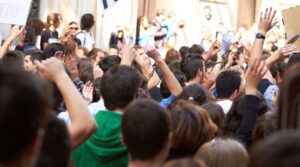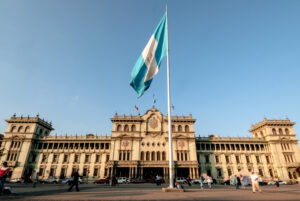On January 21, 2022, Robert F. Kennedy Human Rights, in collaboration with the International Commission of Jurists (ICJ) and Fair Trials, hosted a virtual panel discussion on the failures of the Venezuelan justice system, ahead of Venezuela’s Universal Periodic Review (UPR) which took place on January 25. The panelists included Marianna Romero, Director of the Centro para los Defensores y la Justicia, Alfredo Romero, President of Foro Penal, and Ezequiel Monsalve, a Lawyer at the organization Defiende Venezuela, who shared the perspective of Venezuelan civil society on the current human rights crisis and humanitarian emergency in Venezuela. Here are some highlights from the discussion.
Over the last two decades, political dissidents in Venezuela have been the victims of state policies that increasingly discriminate against, persecute, and criminalize them.
Marianna Romero opened the session with a broad overview of Venezuela’s current human rights situation and its interconnectedness with the authoritarian judicial system and other corrupted public institutions. According to Ms. Romero, Venezuela’s institutions are directly responsible for the country’s current state of human rights because of both their direct actions and deliberate negligence. Additionally, the judicial system has become an accomplice through corruption of its offices, particularly the Office of the Attorney General and the Office of the Ombudsperson. This corruption has been observed and noted by several regional and international mechanisms. Ms. Romero prescribed that an effective transitional justice system must include a “re-institutionalization of all public powers” in order to guarantee independence and recover the confidence of the public.
“The key issue here is the systematic use of the judicial system as a tool or as a weapon for political persecution… and for exclusion of [political] opponents.” – Alfredo Romero
Alfredo Romero detailed the plight of the almost 16,000 individuals who Venezuelan state agents have arbitrarily detained with political motives since 2014. Of the 245 political prisoners who were detained at the time of the webinar, more than half had been held in pretrial detention for more than two years. Not only does this pattern display a blatant disregard for basic international human rights standards, it also violates Venezuela’s Constitution which regulates the amount of time individuals can be detained without a trial. Mr. Romero explained that the state of Venezuela uses arbitrary detention as a mechanism to intimidate human rights defenders, students, journalists, and others who speak out against the government. Furthermore, Venezuela also utilized the COVID-19 pandemic as an excuse to deny detained persons access to their lawyers for one full year.
“What we want to highlight is that the lack of independence and the political pressure exerted on the members of the justice system is precisely what has perpetuated impunity.” – Ezequiel Monsalve
Mr. Monsalve spoke out against the culture of impunity that is allowing Venezuela’s human rights crisis to continue. Despite numerous complaints from citizens and reports from mechanisms such as the Independent International Fact Finding Mission regarding arbitrary detention, torture, and extrajudicial killings, perpetrators are rarely brought to justice. Venezuela’s National Commission for the Prevention of Torture was established in 2013 and has remained effectively inactive. Of 175 recorded killings of protestors in the last several years, only 5 cases have resulted in convictions and sentences. Mr. Monsalve insisted on the importance of safeguarding constitutional rights and reestablishing an independent judiciary.
Venezuela’s Universal Periodic Review before the UN Human Rights Council took place on January 25, 2022. Click here to view the full process.
To view the full webinar, click here.



